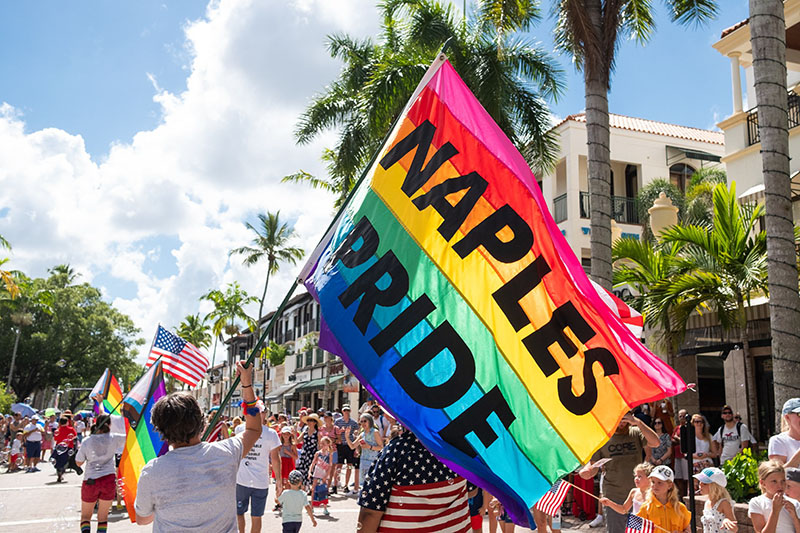Transgender woman sues hotel chain for firing her for wearing women’s clothes to work
Lawsuit alleges hotel chain, and trans woman's supervisor, discriminated against her and created a hostile work environment.

A transgender woman from Pennsylvania is suing a national hotel chain for wrongful termination, alleging that her supervisor fired her because of her gender identity and her insistence on wearing women’s clothing while at work.
Kimberly Grinage, an employee at the Extended Stay America in North Fayette Township in suburban Pittsburgh, filed the lawsuit on Thursday in the U.S. District Court for the Western District of Pennsylvania.
The lawsuit claims that the hotel chain discriminated against her on the basis of sex, created a hostile work environment for Grinage, retaliated against her for complaining about the on-the-job harassment she was subjected to, placed her in fear of being assaulted by Figurski, as well as claims for religious discrimination, discrimination on the basis of disability, negligent training, and wrongful termination, among others.
In her complaint, Grinage alleges that her supervisor, Matthew Figurski — who is named as a defendant along with Extended Stay America — singled her out for mistreatment because of his personal dislike of her gender identity.
According to the complaint, when Grinage spoke with Figurski prior to being hired, Figurski asked if she was a Christian, to which she responded affirmatively. She did not reveal her gender identity at the time. Grinage claims Figurski, purports to be a Christian who conforms to “traditional gender roles and expectations, and expects his subordinates to conform to his interpretations of Christianity and gender roles.”
However, after being hired, Grinage was reportedly encourage to “be yourself.” As a result, she began coming to work dressed in clothing traditionally associated with women.
Some of Grinage’s co-workers mocked her for her style of dress. But when she complained to management, Figurski allegedly told her: “I can’t help you. I don’t want a transgender person here. If you are going to do that, I have to get rid of you.”
Grinage later called the company’s hotline to complain about Figurski. Figurski later cornered Grinage and demanded that the report be retracted. Afterwards, he continued to harass or make insulting comments toward Grinage two to three times each week, such as: “Stop acting like a girl,” “You look like a fag,” and “Dress like a guy.”
Grinage also alleges that Figurski demanded she “‘rate’ the physical attractiveness of female customers.” When she refused to, Figurski allegedly said, “you’re a guy, you are supposed to know when girls are pretty.”
See also: Transgender woman sues American Airlines, alleging employment discrimination
Figurski later told Grinage on Sept. 11, 2020, that she should be fired because of her sexual orientation, that he only hired her because she said she was Christian, that he expected to “look at girls together,” and that, had he known about Grinage’s sexual orientation or gender identity earlier, he would not have hired her. He then told her: “You are a guy, not a girl. You need to quit with that. If you want to continue to act that way, I am going to fire you.”
When Grinage said that he was not permitted to fire her because of her sexual orientation, he responded that he would “find a way” to fire her. Four days later, on Sept. 15, 2020, Grinage was fired.
The reason stated for Grinage’s termination was ostensibly that Grinage did not call police to respond to an incident at the facility, and that customers complained about Grinage’s clothes and the mask she wore to protect against COVID-19.
However, Grinage claims that prior to Sept. 15, Figurski had repeatedly instructed her not to call the police or fire department. On one such occasion, when something was on fire, instead of calling firefighters, Figurski allegedly claimed that Grinage should have put out the fire instead of “acting like a girl.”
See also: Transgender male employee sues Sweetgreen for sexual harassment and discrimination
As for the mask, Grinage notes in her lawsuit that she is a cancer survivor who is immunocompromised, and wore a specialized mask for additional protection from COVID-19. As such, terminating her over alleged customer complaints about the mask raises issues of discrimination based on disability and a failure to accommodate her due to her medical condition.
Figurski declined to comment on the lawsuit when approached by the Pittsburgh Review-Tribune.
A spokesperson for Extended Stay America was not immediately available for comment, in response to an inquiry by Metro Weekly.
In many ways, Grinage’s case is similar to the case of Aimee Stephens, the former funeral home employee from Michigan who was terminated by her employer after she informed her supervisor of her intention to come into work wearing clothing matching her gender identity.
That case ultimately went before the Supreme Court, at which point the high court determined, on a 6-3 vote, that Stephens had been subjected to unlawful sex discrimination when she was fired because of her employer’s discomfort with her gender identity.
As a result of that ruling, as well as additional steps taken by the Biden administration, it is considered illegal under federal law to discriminate in employment against LGBTQ people solely on the basis of their sexual orientation and gender identity.
See also:
Support Metro Weekly’s Journalism
These are challenging times for news organizations. And yet it’s crucial we stay active and provide vital resources and information to both our local readers and the world. So won’t you please take a moment and consider supporting Metro Weekly with a membership? For as little as $5 a month, you can help ensure Metro Weekly magazine and MetroWeekly.com remain free, viable resources as we provide the best, most diverse, culturally-resonant LGBTQ coverage in both the D.C. region and around the world. Memberships come with exclusive perks and discounts, your own personal digital delivery of each week’s magazine (and an archive), access to our Member's Lounge when it launches this fall, and exclusive members-only items like Metro Weekly Membership Mugs and Tote Bags! Check out all our membership levels here and please join us today!
























You must be logged in to post a comment.